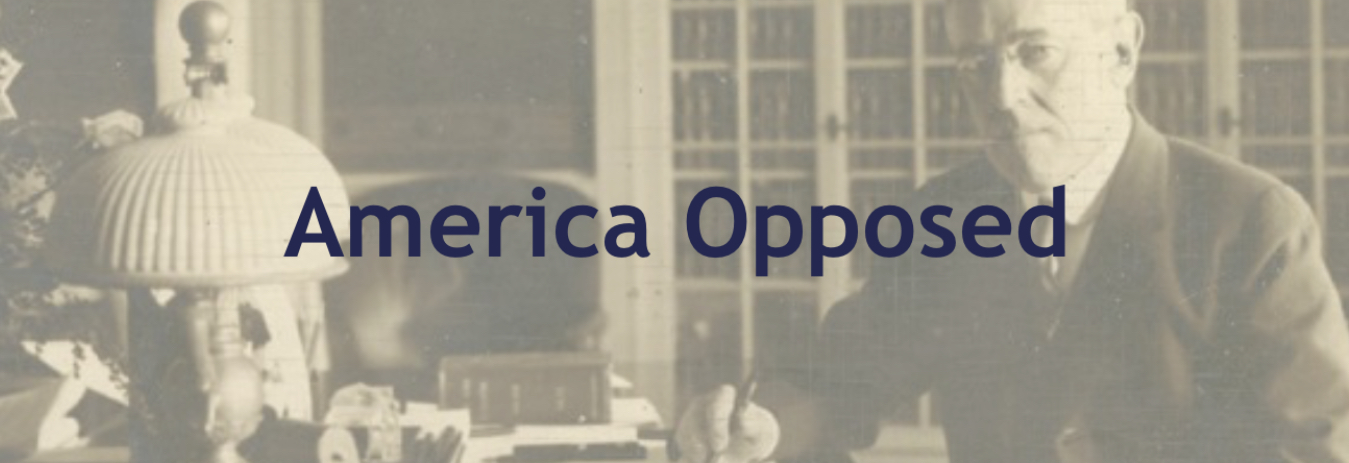
While war raged in Europe, America took an isolationist stance. Pacifist President Woodrow Wilson insisted: "The United States must be neutral in fact as well as in name during these days that are to try men’s souls. We must be impartial in thought as well as in action, must put a curb upon our sentiments as well as upon every transaction that might be construed as a preference of one party to the struggle before another." [1]
However, support for involvement grew in 1915 when Germany sank the private British ship Lusitania, as well as US merchant ships. Although Germany pledged to stop targeting US ships, it soon resumed unrestricted submarine warfare.
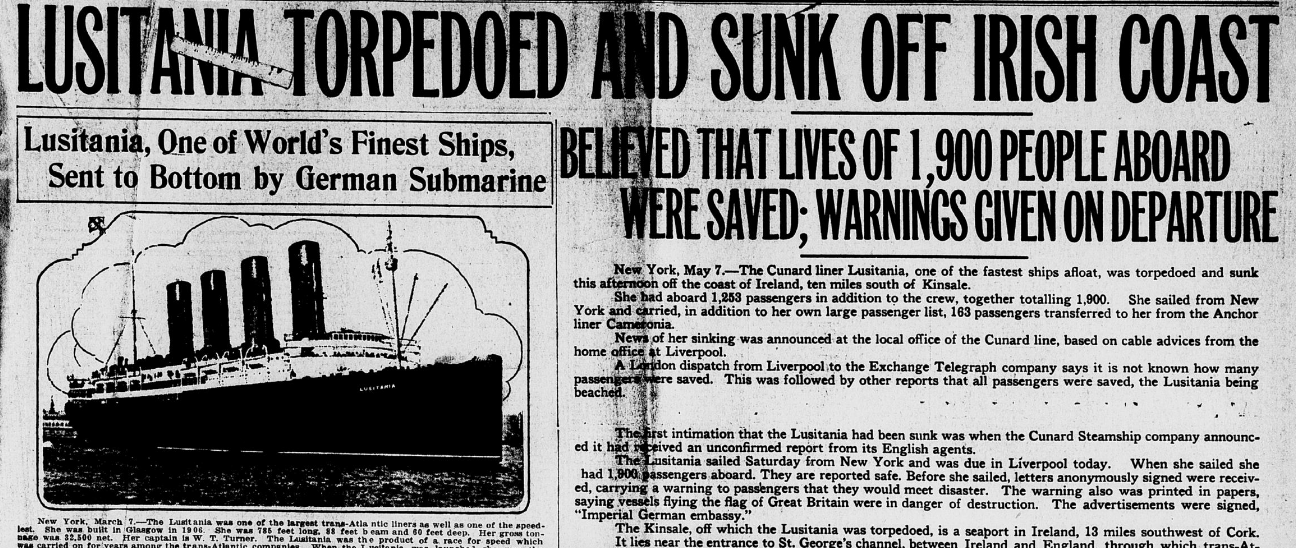
Grand Forks Daily Herald. Chronicling America: Historic American Newspapers, Library of Congress, 7 May 1915.
When an intercepted telegram exposed Germany’s plan to recruit Mexico in case America joined the Allies, Wilson asked Congress to declare war.
"The world must be made safe for democracy. Its peace must be planted upon the tested foundations of political liberty. We have no selfish ends to serve. We desire no conquest, no dominion...we are but one of the champions of the rights of mankind. We shall be satisfied when those rights have been made as secure as the faith and the freedom of nations can make them."
- President Woodrow Wilson (2 Apr. 1917) [2]
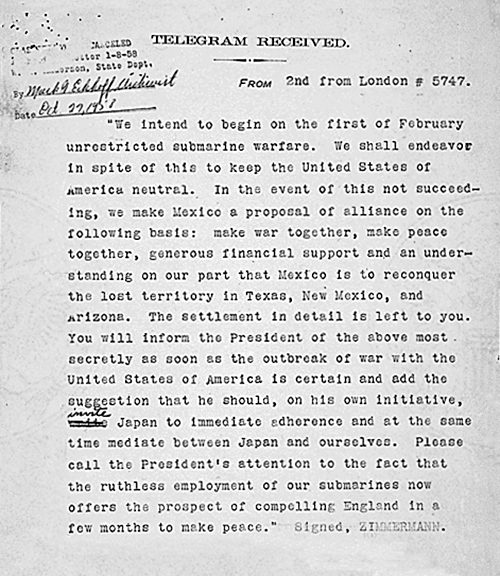
"Telegram From United States Ambassador Walter Page to President Woodrow Wilson
Conveying a Translation of the Zimmermann Telegram 2/24/1917." National Archives, 24 Feb. 1917.
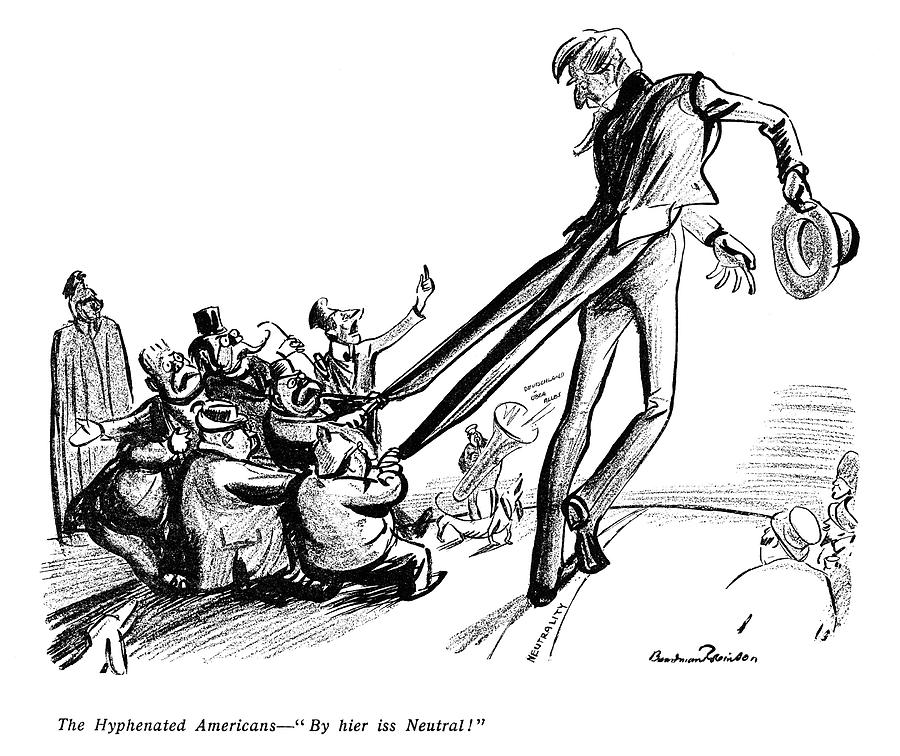
“The Hyphenated Americans.” Granger Historical Picture Archive, 1915.
Many Americans were angered by Wilson’s reversal—he had won his second term in 1916 with the slogan, "He kept us out of war."
Many were unwilling to lose lives and money in what they still viewed as a European war. Others were pacifists with strong anti-war convictions, or ethnic Europeans unhappy about waging war against their homelands.
To recruit soldiers and gain funding, the government needed to suppress this dissent and create popular support.
"Those involved in the movement for women’s rights, workers’ rights, clean government, regulation of trusts, and general social improvement, viewed war as the enemy of reform…Europe's descent into barbarism involved not only death and physical destruction on a massive scale; it marked a halt to the moral progress and social reform that...had characterized the last century."
~ Robert H. Zieger, America’s Great War: World War I and the American Experience (2000) [3]
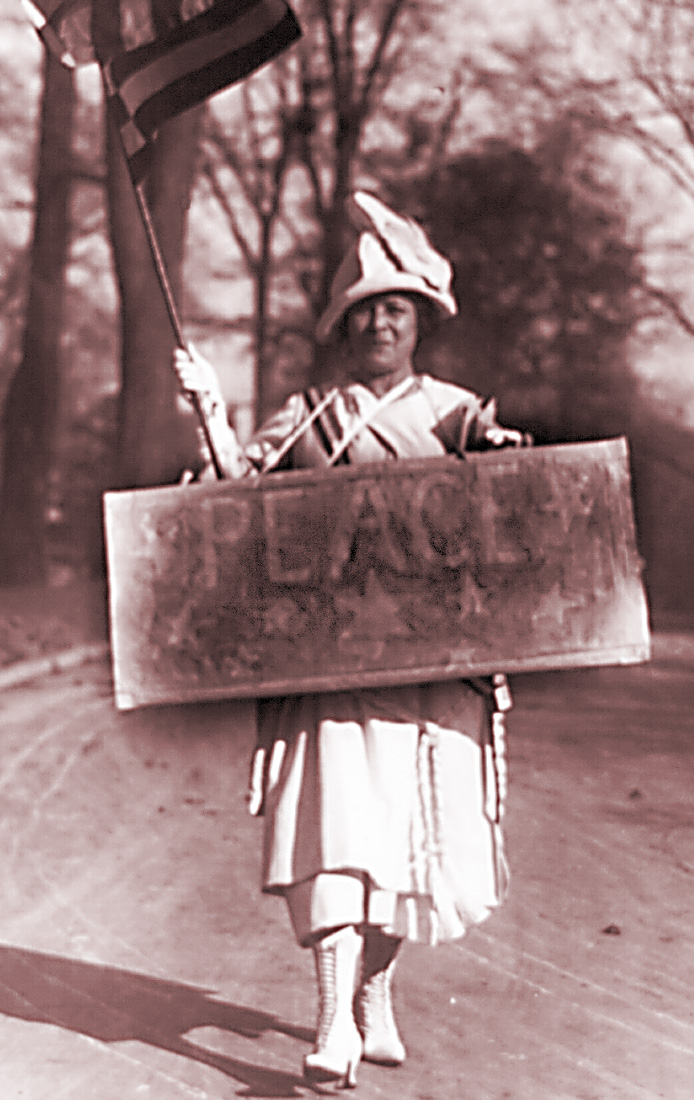
“Woman marching with peace sign and U.S. flag, disarmament conference, Washington, D.C.” Library of Congress, ca. 1914-1920.
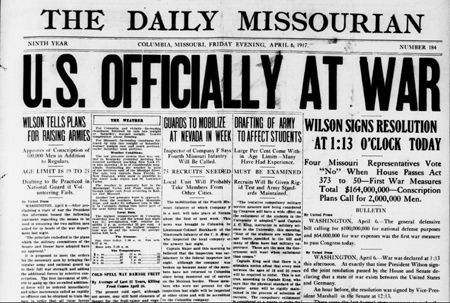
“U.S. OFFICIALLY AT WAR.” The Daily Missourian, 6 Apr. 1917,
Chronicling America: Historic American Newspapers, Library of Congress.
Header image: “Woodrow Wilson--at Desk in White House." Woodrow Wilson Presidential Library & Museum, 5 Mar. 1915.
[1] "Woodrow Wilson's Declaration of Neutrality." World War I Reference Library, Encyclopedia.com, 15 Apr. 2021.
[2] "Address of President Wilson to Joint Session of Congress." Woodrow Wilson Papers, Manuscript Division, Library of Congress, 2 Apr. 1917.
[3] Zieger, Robert H. America’s Great War: World War I and the American Experience. Rowman & Littlefield Publishers, Inc., 2000.